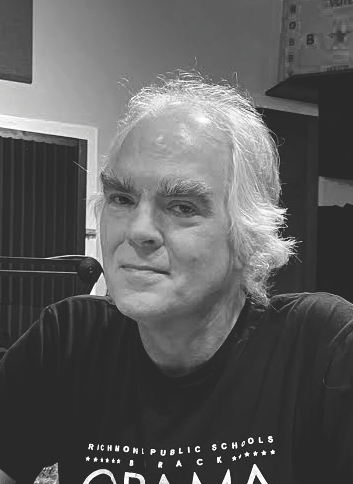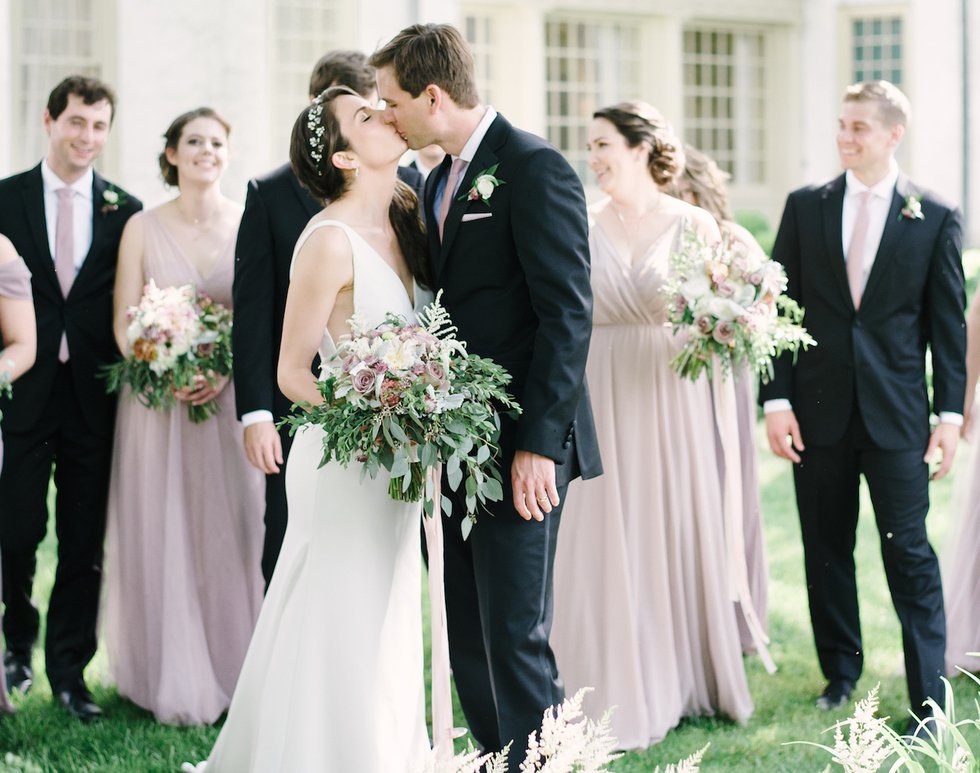Video killed the radio star, but digital couldn’t beat the record store.

Mobius Records, Fairfax
Katie Smith often greets customers who can’t believe their eyes and ears. “‘Record albums?’ they’ll say. ‘I didn’t know albums existed anymore.’”
Smith is a sales clerk at Mobius Records, where consumers discover an old-school musical oasis amidst the Targets and Panera Breads of sprawling Fairfax. “Our bread and butter is rock albums,” she says. “Both re-issues and new.” Mobius opened up four years ago within earshot of George Mason University, and is one of nearly three dozen brick-and-mortar record stores currently making noise across Virginia. It seems that vinyl is back … even in the darndest of places.
“There’s never been a record store even remotely nearby,” says John Monsees, owner of Onancock’s Sound Idea Records, which shares downtown space with the Onancock General Store on Virginia’s Eastern Shore. “I’m putting out new records pretty much every day.”
Monsees has area roots and has worked in many music stores, including a 10 year-stint at the legendary Bleecker Bob’s in New York City: “What I’m trying to do here is bring back some of that old Bleecker Bob’s record store vibe and carry a little bit of everything.” His shop does a brisk online business, and stocks classic rock, jazz and some genuine surprises, including a huge selection (“the biggest on the East Coast”) of records by the cult indie rock band, Sonic Youth.
Sound Idea opened three years ago in the wake of a resurgence of interest in vinyl, but some Virginia record stores are longtime community fixtures that have survived the digital age to become hip and relevant again, including Richmond’s Plan 9, Danville’s Downtown Records, Norfolk’s Skinnies Records, and Birdland Music in Virginia Beach.
“The record companies started pulling the plug on records in 1989,” remembers Barry Friedman, owner of Birdland, which celebrates its 50th anniversary next year. “The companies stopped pressing them and albums were gone by 1991.” First, they surrendered shelf space to compact discs and then online music services almost killed physical media entirely. “We lost a generation of kids through downloading,” he says.
“The industry killed vinyl, but the holdouts were the punkers, the metal heads and the audiophiles,” explains Jim Bland, owner of Richmond’s Plan 9, a Carytown staple since 1981. “It started with the indie music community pressing vinyl again, and it spread into the mainstream. Now everyone puts out vinyl.”
National Record Store Day events, held since 2008, have been a huge factor in promoting the resurgence of the platter. In 2015, album sales in the U.S. reached $416 million, the most since 1988. With more vinyl being manufactured—and available in chain outlets Barnes & Noble, Urban Outfitters and others—the numbers keep climbing. Nielsen Soundscan reports that 2017 marked the 12th straight year of growth.
“People like the ritual of putting on an album, looking at the cover, the aroma of it,” says Ian Little, co-owner of Vintage Vault. “Vinyl just has more personality to it. The gatefold covers, the inserts, they are sort of like art objects.” He says that his Roanoke shop originally opened three years ago with other vintage thrift items, “but it was the records people were interested in. My customers range from teenagers to older folks.”
“People are looking for the music of their youth, and for a certain generation, that’s the Dead Kennedys,” Friedman laughs. “You always go back to listening to what you listened to in high school. Today, there are young people discovering Hendrix and the Beatles, but you’ve also got a lot of 40-and-ups with some extra money in their wallet, who buy a $500 turntable and want that 180-gram pristine vinyl.”
Movies like High Fidelity showcase record stores as dingy hovels with know-it-all staff laughing at mainstream tastes. “I hear, ‘Oh, it’s a hipster thing, it’s a millennial thing,’” says Marty Key, owner of Steady Sounds in Richmond. But his regular clientele, he says, includes all ages. “I get every walk of life coming in.”
Customers often visit Steady Sounds, which opened in 2010, just to hear what the owner is playing in the store. And that’s what independent record stores have that a mall outlet or online retailer can’t provide—personal touch.
“I always try to have, for whatever reason, a lot of Grace Jones in stock,” says Tyler Magill, who owns Low Records in Charlottesville. Magill is a longtime DJ at C-Ville’s non-commercial station WTJU, and Low specializes in the same kind of exotic, eclectic music he plays on the air. “I always make sure I’ve got Gamelan music [from Indonesia] in stock. Is Gamelan going to sell? No. [laughs] But I always sell it.”
This article originally appeared in our October 2018 issue. For a complete list of record stores in the state, click here.








